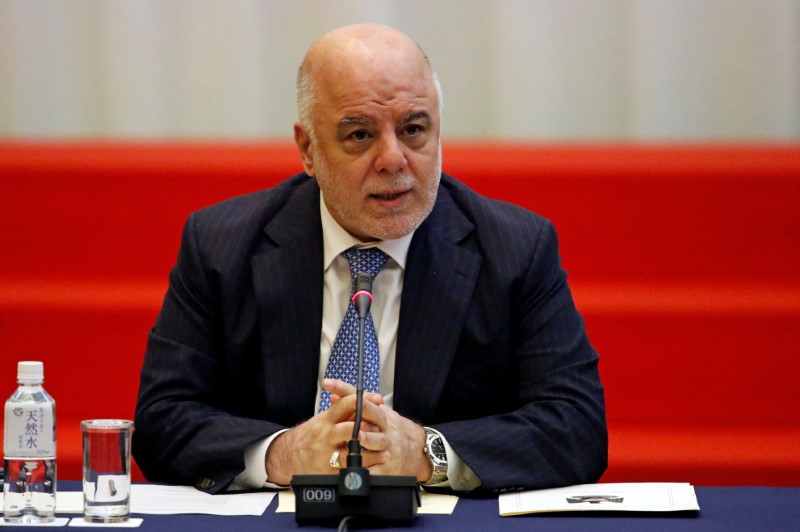
Iraqi Prime Minister Haider al-Abadi speaks during the Tokyo Conference on Supporting Job Creation and Vocational Training to Facilitate Weapons Reduction for Iraqi Society in Tokyo, Japan, April 5, 2018. REUTERS/Toru Hanai
May 13, 2018
BAGHDAD (Reuters) – Prime Minister Haider al-Abadi’s list appears to be leading in Iraq’s parliamentary election followed by influential Shi’ite cleric Moqtada al-Sadr’s alliance, an election commission source and a security official told Reuters.
The sources cited unofficial initial results.
Iraqis voted on Saturday in the first election since the defeat of Islamic State militants inside the country. Final results are expected on Monday.
Turnout was low at around 45 percent, according to the election commission.
Abadi, a rare ally of both the United States and Iran, was mainly concerned with fending off Shi’ite groups other than Sadr’s alliance, which are seeking to pull the country closer to Tehran.
Unofficial results compiled by Reuters reporters in southern provinces also indicated that Sadr, a firebrand cleric who led a violent uprising against U.S. troops from 2003-2011, appeared to be making a strong showing.
If the Sadr list finished second, that would mark a surprise comeback by the cleric. He is popular among the poor but has been sidelined by influential Iranian-backed figures.
(Reporting by Huda Majeed; Writing by Michael Georgy; editing by John Stonestreet)

